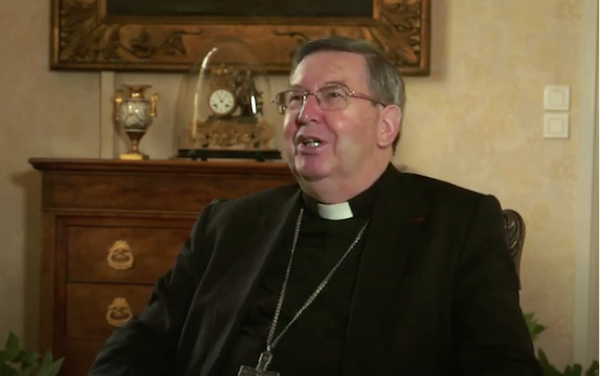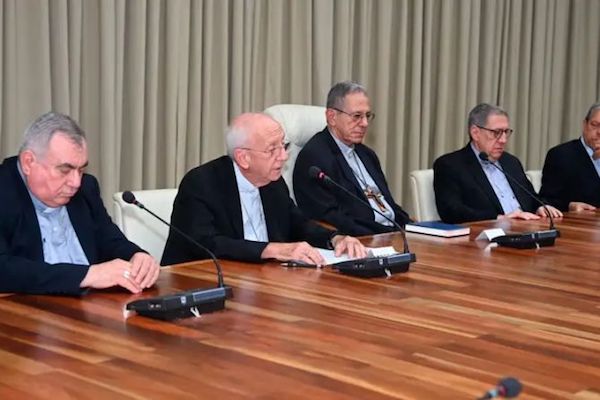The Conference of Catholic Bishops of Cuba reported in a statement that at a meeting on 26 April at the Palace of the Revolution with President Miguel Díaz-Canel, the bishops presented to the communist government “their criteria and vision regarding the reality that the Cuban people are experiencing”.
In the statement published on 28 April, the bishops said they did not limit themselves to the situation of the Church “but shared with all respect, sincerity, and clarity their concerns and assessments about the current moment in which we are living”.
The Cuban government reported on the meeting between Díaz-Canel and other members of the regime with several bishops, including the president of the bishops’ conference, Bishop Emilio Aranguren and the Archbishop of Havana, Cardinal Juan de la Caridad García.
Other members of the government present were Manuel Marrero Cruz, the prime minister, Rogelio Polanco Fuentes, a member of the secretariat of the Central Committee of the Communist Party and head of its ideological department, and Caridad Diego Bello, the head of the Office of Attention to Religious Affairs of the Central Committee of the Party.
According to the president’s office, “issues related to the work of the Catholic Church, the socioeconomic situation of the country, the strengthening of values in society, among other matters of common interest, were addressed”.
It added that “the meeting took place in a climate of mutual respect in accordance with the policy of the revolution towards religion and believers and full religious freedom enshrined in the constitution of the Republic of Cuba”.
The bishops said that they “listened to the information, criteria, and assessments” given by Díaz-Canel and Marrero, “who also fully explained their visions and future prospects regarding the issues addressed”.
The bishops thanked the government for “the possibility of exchange” and “the opportunity to be heard”, and renewed “their commitment to the Cuban people and to everything that favours a more serene climate of peace, harmony, respect for all, and hope”.
According to the report recently published by DatoWorld, Cuba leads the poverty index in Latin America, with approximately 72 per cent of its population below the extreme poverty line that the World Bank marks at a daily income of less than US$1.90.
As the communist regime does not publish figures on the level of poverty, DatoWorld used the October 2022 report from the Cuban Observatory for Human Rights as a reference.
During his February visit to Cuba to commemorate the 25th anniversary of the apostolic journey of St John Paul II, Cardinal Beniamino Stella told the press that Pope Francis desires the release of the young people who were arrested during protests on 11 July 2021.
Reuters reported on 27 April that the assistant secretary of the Cuban bishops’ conference, Fr Ariel Suárez, confirmed that the bishops and the communist regime had discussed the situation of the detainees and that the conversation was open and frank.
“The Church is grateful for the possibility of the meeting and is above all grateful that the door for subsequent meetings has been left open,” Fr Suárez said, regarding a possible amnesty for the imprisoned protesters.
“That willingness exists and was expressed by both parties.”



 Loading ...
Loading ...